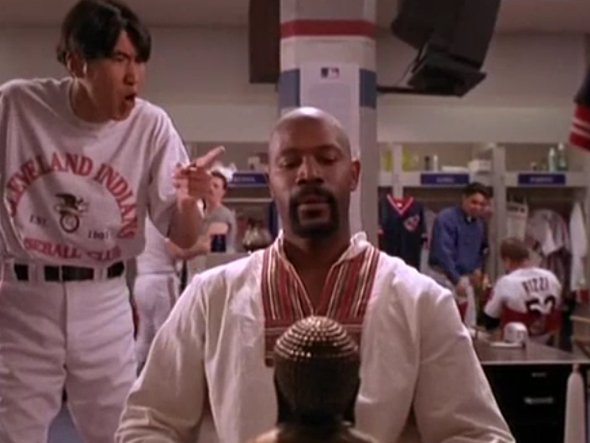The Oneida campaign is just the latest protest this year against the Redskins' name. The online magazine Slate made headlines last month when it declared the site will no longer use"Redskins" to refer to the franchise, choosing instead to refer to "the Washington NFL team" from now on. Slate isn't alone: The New Republic and Mother Jones quickly followed suit. Major news sources like The Washington Post, The New York Times and The Associated Press, however, will continue to refer to the team as the "Redskins" this season.
But where did the word "redskin" come from? Many dictionaries and history books say the term came about in reference to the Beothuk tribe of what is now Newfoundland, Canada. The Beothuk were said to paint their bodies with red ochre, leading white settlers to refer to them as "red men."
According to Smithsonian historian Ives Goddard, early historical records indicate that "Redskin" was used as a self-identifier by Native Americans to differentiate between the two races. Goddard found that the first use of the word "redskin" came in 1769, in negotiations between the Piankashaws and Col. John Wilkins. Throughout the 1800s, the word wasfrequently used by Native Americans as they negotiated with the French and later the Americans. The phrase gained widespread usage among whites when James Fenimore Cooper used it in his 1823 novel The Pioneers. In the book, Cooper has a dying Indian character lament, "There will soon be no red-skin in the country."
The Pioneers and other books by Cooper were largely seen as sympathetic toward Native Americans and their struggles in the 1800s. Decades later, the word "redskin" began to take on a negative, increasingly violent connotation. Author L. Frank Baum, best known for his classicThe Wizard of Oz, celebrated the death of Sitting Bull and the massacre at Wounded Knee with a pair of editorials calling for the extermination of all remaining Native Americans. In one of the December 1890 pieces, Baum wrote, "With his fall the nobility of the Redskin is extinguished, and what few are left are a pack of whining curs who lick the hand that smites them."
Read More | "Are You Ready For Some Controversy? The History Of 'Redskin'" | Lakshmi Gandhi | NPR
